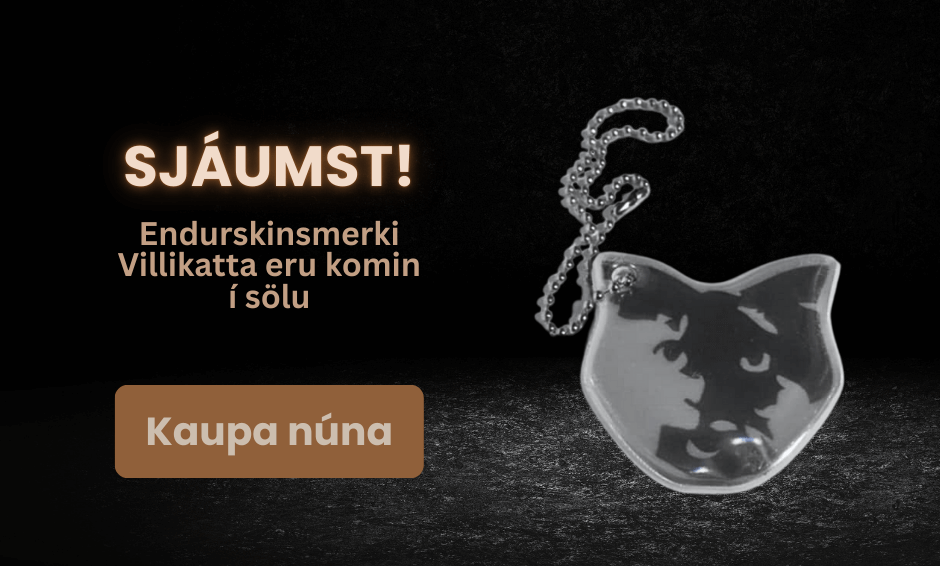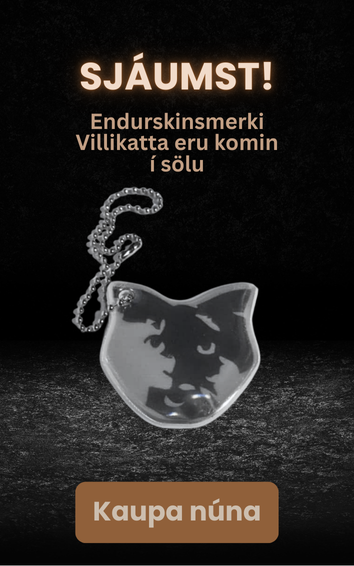Foster homes
An important link in the welfare of feral and stray cats
Villikettir foster homes are of all different types and ready to take on various projects. We always need good foster homes on hand, for example for orphaned kittens or pregnant females, sweet domestic cats waiting for the perfect future home, and feral cats who need to learn how to live with humans in a home environment.
What kind of cat can you foster?
We carefully evaluate all foster homes and make careful choices when it comes to placing our cats. Not everyone may feel comfortable caring for a stubborn feral cat, but some may have the patience needed to allow a scared kitty to come out of its shell. Others may have experience in and feel comfortable with caring for sick cats or helping a mom give birth and giving the kittens a good start in life.
Adult cats
Our adult cats are usually strays or have been lost. Usually they are not microchipped and therefore it is almost impossible to track down the previous owner unless the owner is actively searching for them.
These cats are often very affectionate and do not like being in our shelters. We need foster homes for these cats while we advertise them in hopes of finding their owner, or while we find new homes if no owner comes forward.
Feral cats
Feral cats were born or have lived most of their lives outdoors, but for some reason are not able to return outside. These are often cats that have lost their territory, are old or not in good health.
These cats need foster homes that are patient and understanding. Feral cats are naturally distrustful of humans but enjoy being in the warmth and safety of their surroundings. It takes time to earn their trust, but it's all the more rewarding when you get to pet kitty for the first time, or when she crawls into bed for a cuddle.
Sick cats
Our sick cats have often been homeless for a long time and do not feel well. They are often scared and need to be put in a quiet environment where they can be cared for better than we can provide in our shelters amidst all the other kitties in our care.
Foster homes may need to give medication and provide transportation to the vet as needed.
Orphaned kittens
These are kittens that have been rejected by the mother or found abandoned outdoors. The age of the kittens determines how much work they require. Very young kittens need to be bottle-fed around the clock, the youngest every two hours and then less often as they get older.
This work can be very demanding, but it is also very rewarding. The initial fatigue is quickly forgotten as the kittens grow and develop. If you take in a kitten that is a few weeks old, the work mainly consists of getting the kitten used to human interaction and taking good care of it. These kittens may also need medication and visits to the vet.
Pregnant females or moms with kittens
These are usually feral females that are not used to humans. They are afraid and like to hide. Therefore, it is necessary to have a separate room so that they cannot get away. These cats need peace and quiet and access to food/water and a litter box. After the kittens are born, they need to be socialized to humans. They need to be well prepared for their future home and feel comfortable with human contact.
The moms stay with their kittens for the first few weeks, but then the kittens are in your care until they go to a new home.
Fostering a cat comes with a lot of responsibility. Foster homes will cover all the expenses associated with keeping a regular cat. Villikettir, however, will cover all veterinary costs.
If there are other pets in the household, they must be vaccinated and spayed/neutered in their best interest.
When it comes to choosing a forever home for your foster cat, your opinion and perspective matter a lot to us. After all, you know your foster cat best!
The minimum age for fostering is 20.








